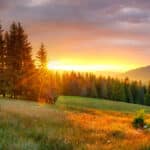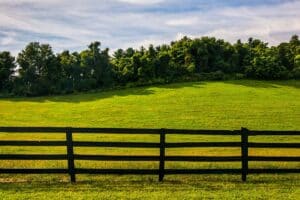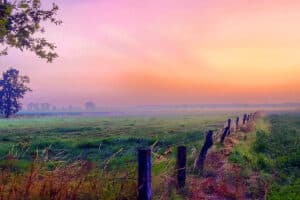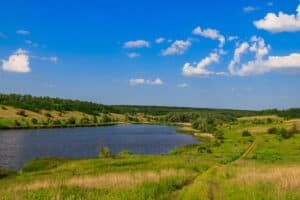What are the right questions for a buyer to ask when considering purchasing a piece of rural land for sale? It all depends on the objectives the buyer has in mind when making their purchase.
A recent article on LANDTHINK entitled, “Top 20 Questions for Land Buyers” garnered a lot of attention and created quite a bit of controversy among LANDTHINK readers. I read many of the comments, and started thinking about what my list of questions would look like as I perform due diligence for myself or my clients when considering a property. That list would need to be tweaked a little depending on the objective for the purchase. For example, a person considering developing a tract into a subdivision on a river would have some significantly different questions to answer than a person merely buying a rural retreat for their family. So the following list would be my jumping off point for most buyers of rural tracts:
- How is the property accessed? (Road frontage, deeded easement, etc..)
- Are there any water features on the property? (rivers, creek, lake, springs)
- Are utilities available to the property?
- What is the timber like? (stand types, age, planted or natural)
- Has the property been surveyed? (Are boundaries marked?)
- Who are the neighbors surrounding the tract?
- Can I get a clear title to the property with title insurance?
- Do the timber, mineral and water rights convey with the sale?
- Are there any easements on the property? (adjoining owners, conservation, utility)
- Are there any known environmental concerns or latent defects with the property?
- How is this property zoned? (agricultural, residential, commercial?)
- What are the annual property taxes?
- Have the owners received notice from any governmental agency about possible assessments or actions in the near future that would affect this property?
- Will the property be conveyed subject to covenant and restrictions? (If so, what are they?)
- How does the land lay? (slopes, bottomland, elevation change, etc…)
- Are there internal roads and trails?
- Do all of the improvements to the property convey with the sale? (gates and fences, shooting houses, out buildings, etc…)
- Does the land drain well or does it stay wet for much of the year?
- If I had to sell this property again in a year, is it desirable to other potential buyers?
- Can I pee off my porch in privacy?
Buyers that are considering purchasing land for growing crops would also be concerned about things such as:
- What is the corn grain yield per acre?
- Is it possible to irrigate with a center pivot?
- Is an irrigation permit available from the Army Corps of Engineers?
- What is the soil profile of the property?
- Where are the nearest grain processors?
An investor purchasing timberland for their portfolio would ask questions like:
- What is the site index of the land?
- Is any of the timber merchantable now?
- Is more than 70% of the property sloped suitably for growing and harvesting timber?
- Where are the nearest wood outlets and mills?
The list could go on indefinitely for developers, hunters, farmers, investors, and survivalists. The point I am trying to make is that you need to know what your objectives for owning a rural property are before you can even know the right set of questions to ask. This is one reason a buyer should engage the help of a competent agent when purchasing a rural property. Having someone working for you that knows the right questions to ask can save you thousands of dollars and make your transaction much safer and pain-free.
This content may not be used or reproduced in any manner whatsoever, in part or in whole, without written permission of LANDTHINK. Use of this content without permission is a violation of federal copyright law. The articles, posts, comments, opinions and information provided by LANDTHINK are for informational and research purposes only and DOES NOT substitute or coincide with the advice of an attorney, accountant, real estate broker or any other licensed real estate professional. LANDTHINK strongly advises visitors and readers to seek their own professional guidance and advice related to buying, investing in or selling real estate.










I’m an agent down in Texas and this list is awesome! Thanks Jonathan!
There are a ton of questions that you need to ask when buying land at it is great that the article goes over some of the more important ones. For example, it makes a lot of sense that you’d want to know about the neighbors surrounding the land. That way, if you decide to build a home on the land you’ll know who your neighbors are in advance.
Great List!!!